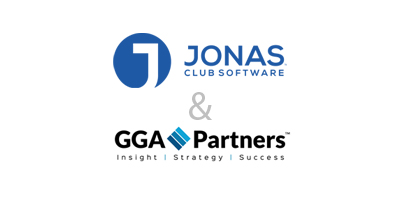Guest author – Lonnie Lister, General Manager, Portland Golf Club
Lonnie Lister attended the University of Arizona for a degree in music education. He worked on the wait staff at private clubs during his college summers and found that he was drawn more to club management than to a music career. Prior to joining PGC as its GM in January 2017, Lonnie was the GM at Skyline Country Club in Tucson, AZ where he spent 23 years working in various areas of the Club. Lonnie is active in CMAA and has served on the board of the Greater Southwest Chapter.
Portland Golf Club has a rich history, but like other private clubs it faces ongoing challenges.
The city of Portland has grown tremendously over the last decade, leading to dramatic shifts in both the market and demographics.
While this growth brings opportunity, it also brings about change. For us that change impacts a number of areas – specifically around membership recruitment and retention; staff hiring and retention, and being able to control operating costs without compromising the service we provide to members.
With this in mind, the board of Portland Golf Club voted last year to adopt GGA’s Strategic Intelligence (“SI”) platform, which features several components: a Market Scan, a Member Survey, and an assessment of the Club’s “Operational Vital Signs” which compares our performance to clubs of similar stature both within our market and in other markets.
Selective targeting
The initial Market Scan, which revealed potential member households within a two to five-mile radius of the Club, was fascinating. We learned that within a five-mile radius of Portland Golf Club there are more than double the number of golfing households than is typical for private clubs nationally. That was a welcome surprise.
Though our Club is still very selective, the Market Scan revealed that there was much more potential for outreach than we’d been aware of before.
As membership recruitment and retention was our number one issue, what we learned inspired us to send a “welcome letter” from the Club to home buyers in our prime market neighborhoods. This was not a recruitment package, but rather a gently informational welcome note – letting people who might be new to Portland know that this wonderful club exists nearby.
Taking the time to listen
As a club manager, one can often find themselves guilty of favoring (or at least focusing on) one ‘R’ over the other – namely, recruitment over retention.
But retention can fuel recruitment.
A Member Survey can inform what changes are necessary based on the actual needs that current members identify, which is vastly more effective. And the satisfaction and sense of positivity this can create reverberates beyond the four walls of the clubhouse.
What was critical for us was surveying our membership in a way that was specific to the Club, not just a broad-brush approach. This meant we could directly address concerns of our membership and maximize the effectiveness and insights of the survey. Already this has delivered responses that are candid and honest, and provided a robust foundation to inform strategic decisions.
Reassuring the Board
The SI platform has also been incredibly helpful in reassuring the Board that the Club is operating efficiently.
We can see in the Operational Vital Signs report that in almost every measure Portland Golf Club is performing well. Where we find anomalies, we can take a closer look to understand what these are, and we can then decide if they are something we need to act upon or factor into our strategic decisions.
One such anomaly we found at Portland Golf Club was that most golfers prefer to walk, explaining why our cart revenue is below national benchmarks. This is not a trend we see changing, so rather than acquire more carts or attempt to upsell them at every opportunity, we decided to focus our efforts in other, more fertile areas for business development.
Going deeper
There’s no doubt Portland Golf Club has embarked on a journey which places strategic intelligence at the forefront of the decisions we make.
Now we are in the second year of our SI subscription and have engaged in a Market Analysis to take a deeper look into what we learned from the original Market Scan.
As analysis looks at trends, rather than simply a snapshot of the market, this will allow us to plan better in what is clearly a fast-changing region.
Portland’s metro region now numbers more than 2.4 million people. Almost 50% of the adult population has a college degree, and in Portland Golf Club’s primary market areas that percentage is even higher.
Armed with this knowledge, we can embark on our membership recruitment and retention activity with a clear sense of who our prospective customers are and where they are situated in relation to the Club.
Empowering the manager
Given my history working in a number of different roles in the club environment, I have always felt very comfortable on the operational side of the business. However, the three most important issues we face at Portland Golf Club are all byproducts of local market growth outside of our Club’s operations.
Strategic research is providing us with data and insights we need to address each of these issues and is helping the Club in both the short and long-term.
This journey is changing the way I think and the way our team strategizes. It provides me with more data than I have ever had available to me at other clubs and is full of relevant information that we depend on daily. Our management team and committees routinely refer to the intelligence reports, our budgeting process benefits from the availability of current data to support assumptions, and our Board meetings are more productive and efficient.
I now feel that there is a greater connection between the service we deliver on the ground to the level and breadth of service prospective members are looking for – because we are armed with the data and knowledge to have confidence to be more aware of market needs.
Moving forward
So, where do we go from here? Whereas before we were a Club reacting to changes and adjusting plans for the following year, now we are a club looking 2, 3, 4, even 10 years into the future.
For a time, it felt as though the city of Portland’s growth was getting away from us. Now, we are ready for how it will develop and who will move here, giving us the ability to refine the value proposition that this Club offers them both now and well into the future.
Learn more about Strategic Intelligence here.




